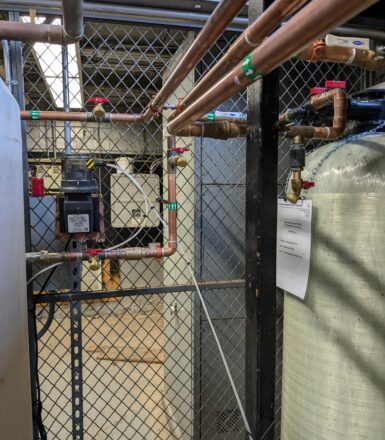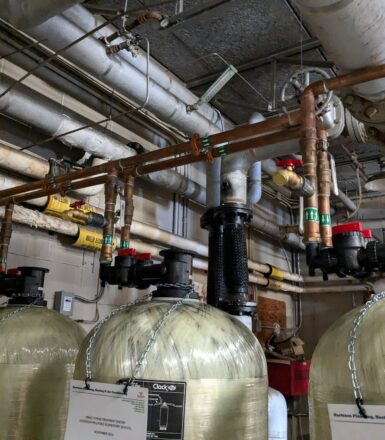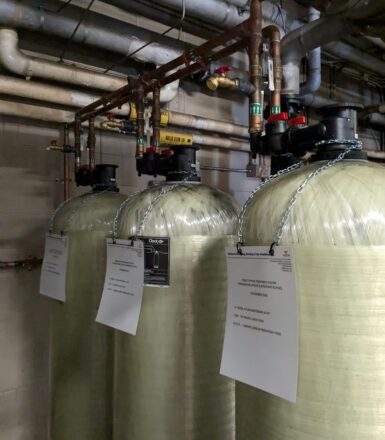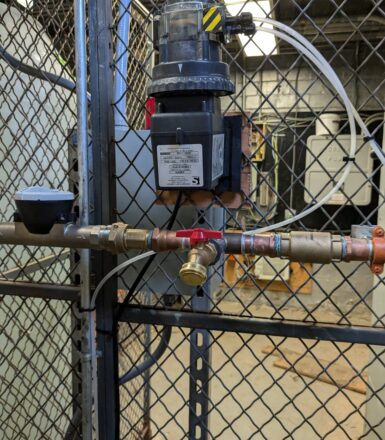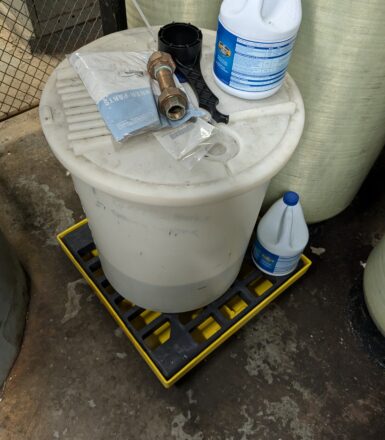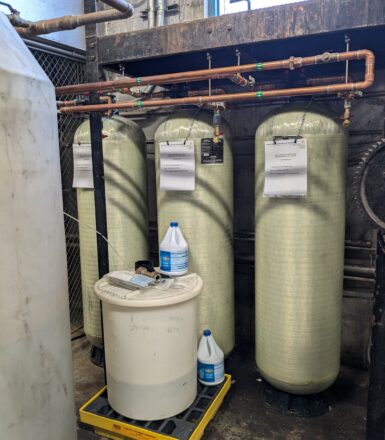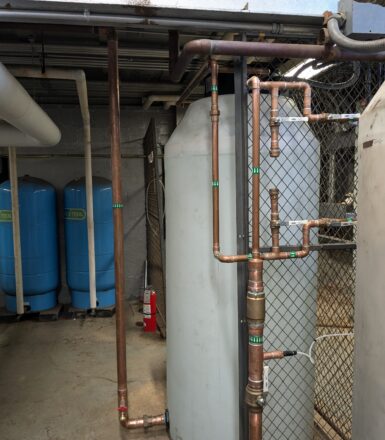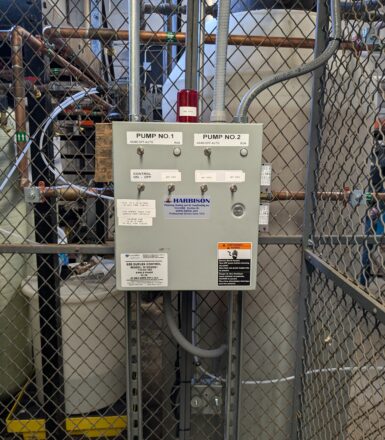MSAD 70 PFAS Treatment Project
Hogdon, Maine

Project Scope
Per- and polyfluoroalkyl substances (PFAS) in drinking water have become an emerging public health issue, particularly for children, who are more susceptible to potential health effects. Maine School Administrative District 70 (MSAD 70), serving a rural community in Aroostook County, faced elevated PFAS levels in the water supplies at their two schools. Recognizing the risks, the school district acted proactively to provide safe drinking water for students, staff, and families. From the start, MSAD 70 was committed to transparency, keeping the public informed of the issue and its steps toward a solution.
Haley Ward, Inc. provided engineering support from the early stages of the project through completion. Each school operated its own independent water system, requiring two separate treatment installations rather than a single combined system. While a centralized solution was considered, it would have required more time and come with a significantly higher cost. By designing two smaller, tailored systems, Haley Ward achieved compliance more efficiently and cost-effectively, demonstrating how technical solutions can be adapted to meet the realities of school operations and community budgets.
The project required creative problem-solving due to extremely tight space constraints in each school’s mechanical areas. Haley Ward engineers applied proven PFAS treatment technology—filtration using granular activated carbon (GAC)—but the uniqueness lay in the way the systems were configured. By carefully analyzing the hydraulics of each building and modifying layouts to work around existing equipment, the team was able to fit treatment vessels into spaces that initially seemed unworkable.
This ingenuity transformed a seemingly impossible challenge into a practical, sustainable solution. The design not only fit within restrictive footprints but also preserved existing building functions, allowing school operations to continue with minimal disruption during installation. The ability to adapt a standard treatment technology to such unique conditions demonstrates the kind of innovative application ACEC seeks to recognize.
To simplify long-term operations, Haley Ward leveraged design criteria from one school to guide the other, creating systems that function similarly. This thoughtful approach gave MSAD 70 consistency in operation and maintenance, easing the burden on staff responsible for managing both facilities. Harbison Plumbing, Heating & Air Conditioning served as the construction contractor, collaborating with Haley Ward and MSAD 70 to bring the systems online successfully.
The project’s value extends beyond engineering. For a rural school district with limited financial and staffing resources, the ability to provide PFAS-free water is as much a social victory as a technical one. The transparency of the process reassured parents and teachers that the health of their children was the top priority, while the long-term maintainability of the systems guarantees ongoing protection. The dual-system approach also set a precedent: small districts do not need to choose between regulatory compliance and financial feasibility—engineering excellence can deliver both.
Today, both MSAD 70 schools have reliable PFAS treatment systems in place, protecting the health of children and setting an example for how small rural districts can address emerging contaminants with creativity, collaboration, and technical expertise. This project highlights the broader role of engineers as stewards of community well-being: advancing public health, reinforcing public trust, and showing that even the most resource-limited districts can achieve solutions on par with larger systems.
Market
Services
Environmental
Drinking Water Operations
Engineering
PFAS Treatment
Project Data
| Civil Engineering | Design of PFAS Removal treatment system, construction administration |
| Environmental Review | PFAS testing |
